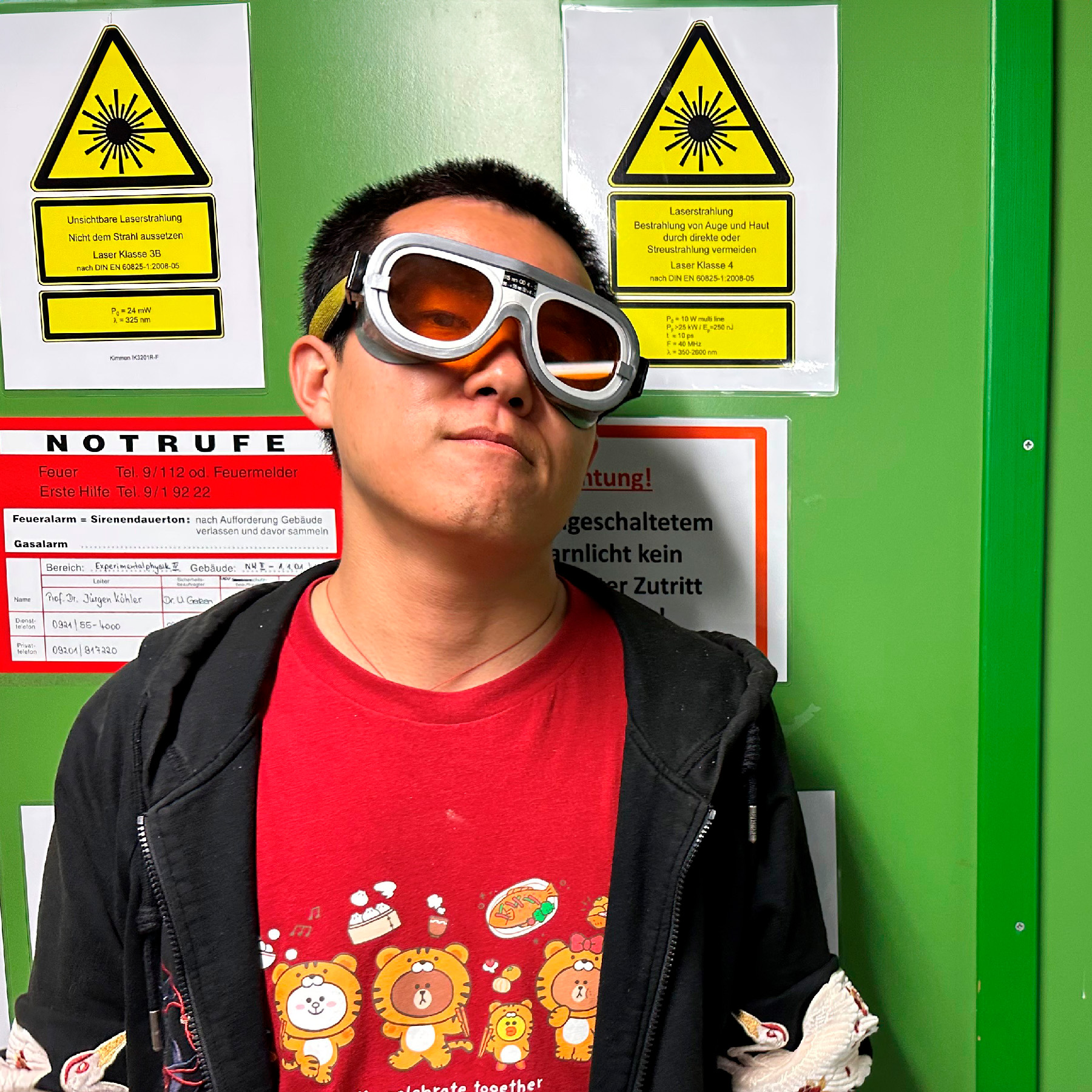Alumni Profile – Heyou Zhang
Dr Heyou Zhang isn’t afraid of a challenge and he’s no stranger to adversity, but the path of least resistance could now prove to be his best route to research results and professional success.
After completing a PhD as a member of Exciton Science at the University of Melbourne, Heyou began working with the Centre’s Associate Investigator Jürgen Köhler at the University of Bayreuth.
In Bavaria, Heyou is helping Jürgen’s group to tackle the tough challenge of developing optical logic gates, a technology that offers the promise of cheaper and faster information transfer.
“Traditional logic gate transistors use electronics that cost a lot of energy and create heat, so your phone gets hot after a while,” he said.
“Our goal is to use photons of light instead of electrons and the challenge is how to control the photon.
“A very long-term goal is to fabricate a CPU-like logic circuit which runs by light not electricity.

Dr. Heyou Zhang
There was a difficult period of adjustment for Heyou upon his arrival in Germany, as he got to grips with both a new language and a less familiar scientific field.
“It's really a big transition for me because this is a pure organic chemistry group and a pure optical physics group in Bayreuth,” he said.
“What I did before is physical chemistry, and it was quite challenging to handle organic chemistry and optical physics in the beginning of my postdoc. But I’m very happy. I’ve learned lots of new things.
“And one funny thing I always say is, because it's a physics group, I am the one who knows chemistry best in this group, and once I get back to a chemistry group, I can say I'm the one who knows physics best in the group!”
Heyou started his PhD back in 2017 but was unable to formally graduate until 2022 due to delays and travel restrictions imposed during the pandemic.
Border closures meant he was stuck in China for more than a year, and his time with Exciton Science was ultimately curtailed by COVID-19.
Nevertheless, Heyou has retained strong connections to the tightknit research community in Melbourne and Sydney.
“Without the Centre, I wouldn’t be where I am now,” he said.
“It's a very big family. It’s nice even now because I still have lots of junk left in Melbourne, and lots of people there are helping me to take care of it.
“For example, my Australian driver’s license got lost, and a trustworthy friend of mine in the Centre will visit us later this year, and he’s bringing my driver's license here.”
Heyou also completed his Master’s degree at the University of Melbourne, where Professor Paul Mulvaney, the Director of Exciton Science, has served to guide and inspire his student.
“Before I start my own group, I want to have ten first author papers. It's a very clear goal,” he said.
“For the long term, I want to be like Paul. That's very simple. Because Paul is so friendly, very easy-going, but still very good at what he's doing as a professor. I think to be working with Paul and Jürgen, it's very relaxed and joyful. They’re my role models. I don't have to be as good at them, but something like them.”
Heyou now has the opportunity to continue working closely with members of Exciton Science based at the University of Melbourne and Monash University as part of a new International Research Training Group, along with the University of Bayreuth.
“This project is actually a very big bonus for me because this is a highly interdisciplinary project,” he said.
“It involves organic chemistry, exciton science, physical chemistry, spectroscopy, a lot of things which none of the professors can run by themselves. And of course, I cannot either, but the good part is, I can learn from all of them at the same time.
“I'm really looking forward to being a part of this, especially with new students coming in.”
Member profile: Rugang Geng
Member profile: Sam Zaman